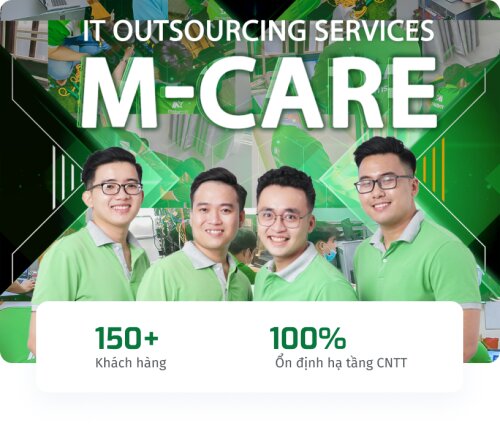Best Data Center & Digital Infrastructure Lawyers in Ho Chi Minh City
Share your needs with us, get contacted by law firms.
Free. Takes 2 min.
List of the best lawyers in Ho Chi Minh City, Vietnam
About Data Center & Digital Infrastructure Law in Ho Chi Minh City, Vietnam
Ho Chi Minh City is a fast-growing hub for technology, digital services, and international business in Vietnam. To support this growth, there has been significant investment in data centers and digital infrastructure. This sector is essential for storing, processing, and exchanging data securely and efficiently. Data Center & Digital Infrastructure law in the city encompasses all legal regulations related to the development, operation, compliance, and security of data centers, internet exchanges, and supporting services. These laws help protect users' data, ensure fair competition, and safeguard national interests as the country continues to digitize.
Why You May Need a Lawyer
Legal circumstances in the Data Center & Digital Infrastructure field can be complex and often require specialized knowledge. Common reasons people seek legal assistance include:
- Establishing a new data center or digital infrastructure project and obtaining all necessary permits and licenses
- Complying with local cybersecurity, privacy, and data protection regulations
- Drafting, reviewing, and negotiating contracts with clients, partners, or service providers
- Advising on lawful cross-border data transfers
- Resolving disputes regarding data breaches, outages, or service level agreements
- Managing risks related to intellectual property, confidential information, or trade secrets
- Due diligence for mergers, acquisitions, or foreign investments in data center assets
- Understanding foreign ownership and investment restrictions in strategic sectors
- Representing companies before government agencies on licensing or regulatory issues
- Ensuring compliance with evolving technology laws, such as Vietnam's Cybersecurity Law
Local Laws Overview
Several key regulations impact data centers and digital infrastructure in Ho Chi Minh City. The most relevant include:
- Law on Cybersecurity (2018) - Requires organizations involved in internet services to store certain types of data locally and cooperate on cybersecurity matters.
- Law on Information Technology (2006) and its subsequent amendments - Covers data protection, information security, and management of information infrastructure.
- Law on Telecommunications (2009, Amended 2023) - Regulates telecommunications networks, including physical infrastructure and data center operations.
- Personal Data Protection Decree (2023) - Imposes strict requirements on how personal data is collected, processed, stored, and transferred.
- Investment Law and related regulations - Outlines conditions for domestic and foreign investment in data center and IT infrastructure projects.
- Licenses and permits - Businesses may be required to obtain licenses from the Ministry of Information and Communications and local authorities for telecom, data storage, or cloud services.
These laws are supported by numerous circulars, decrees, and guiding documents which detail compliance requirements for operators of digital infrastructure.
Frequently Asked Questions
What licenses are required to build and operate a data center in Ho Chi Minh City?
You will typically need an investment registration certificate, an enterprise registration certificate, and possibly a telecommunications license if network services are offered. Additional permits may be required from city authorities or relevant ministries based on service scope.
Are there local data storage requirements in Vietnam?
Yes. The Cybersecurity Law and the Personal Data Protection Decree require certain types of data, especially personal and sensitive data, to be stored within Vietnam for designated organizations.
Can foreign companies own and operate data centers in Ho Chi Minh City?
Foreign ownership is permitted, but there may be limitations in sectors deemed critical, such as telecom and information security. Legal advice is essential to navigate ownership structures and compliance.
What are the main data protection laws affecting data centers?
The key laws are the Law on Cybersecurity and the Personal Data Protection Decree, which set standards for handling, protecting, and transferring data in and out of Vietnam.
Do data centers in Ho Chi Minh City need to report cybersecurity incidents?
Yes. Operators must promptly report incidents, breaches, or risks to the Ministry of Information and Communications and relevant authorities in compliance with the Cybersecurity Law.
What are the penalties for non-compliance with data center regulations?
Penalties range from administrative fines to suspension of operations, and in serious cases, criminal liability. The amount depends on the nature and severity of the violation.
Do agreements with clients or service providers need special clauses because of Vietnamese laws?
Yes. Contracts should address compliance with Vietnamese law, data protection, cybersecurity obligations, and resolve cross-border legal issues, especially for international clients.
Is cross-border data transfer allowed from Vietnam?
Cross-border data transfers are permitted but regulated. Transfers often require satisfying stringent conditions and obtaining approval from Vietnamese authorities, depending on the data type.
What data security standards must data centers follow?
There are no unified standards, but centers are expected to follow industry best practices and comply with technical and managerial requirements outlined in Vietnamese law.
Who regulates data center projects in Ho Chi Minh City?
The Ministry of Information and Communications is the primary regulator, working with Ho Chi Minh City Department of Information and Communications for local licensing and management.
Additional Resources
If you need further information or wish to verify compliance requirements, the following resources may help:
- Ministry of Information and Communications (MIC) - Oversees ICT and telecom policy, licensing, and cybersecurity.
- Ho Chi Minh City Department of Information and Communications - Local regulator for ICT matters in the city.
- Vietnam Internet Association (VIA) - Supports and advises on digital infrastructure development and best practices.
- Vietnam Chamber of Commerce and Industry (VCCI) - Offers business support and legal information for investors in the digital sector.
- Relevant Vietnamese government portals for legal documents and investment guidelines.
Next Steps
If you are planning to establish, invest in, or operate data center or digital infrastructure projects in Ho Chi Minh City, Vietnam, it is essential to seek professional legal advice. Consider the following steps:
- Assess your business scope and identify the specific services you intend to offer.
- Consult with a local lawyer who specializes in ICT and technology law to ensure full compliance with all national and local regulations.
- Gather and prepare all required documentation for licenses and permits.
- Work proactively to build contracts and internal policies that reflect Vietnamese legal requirements and best practices.
- Plan for ongoing legal and regulatory changes, as the digital infrastructure sector is evolving rapidly in Vietnam.
- Document and report any incidents in accordance with the law, and cooperate fully with relevant authorities to minimize legal risks.
By taking these steps and seeking timely legal support, you can navigate the complex regulatory environment of Ho Chi Minh City's data center and digital infrastructure sector confidently and efficiently.
Lawzana helps you find the best lawyers and law firms in Ho Chi Minh City through a curated and pre-screened list of qualified legal professionals. Our platform offers rankings and detailed profiles of attorneys and law firms, allowing you to compare based on practice areas, including Data Center & Digital Infrastructure, experience, and client feedback.
Each profile includes a description of the firm's areas of practice, client reviews, team members and partners, year of establishment, spoken languages, office locations, contact information, social media presence, and any published articles or resources. Most firms on our platform speak English and are experienced in both local and international legal matters.
Get a quote from top-rated law firms in Ho Chi Minh City, Vietnam — quickly, securely, and without unnecessary hassle.
Disclaimer:
The information provided on this page is for general informational purposes only and does not constitute legal advice. While we strive to ensure the accuracy and relevance of the content, legal information may change over time, and interpretations of the law can vary. You should always consult with a qualified legal professional for advice specific to your situation.
We disclaim all liability for actions taken or not taken based on the content of this page. If you believe any information is incorrect or outdated, please contact us, and we will review and update it where appropriate.











